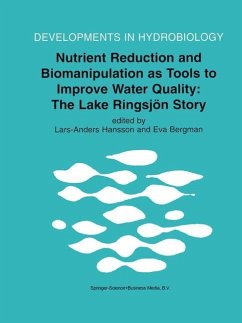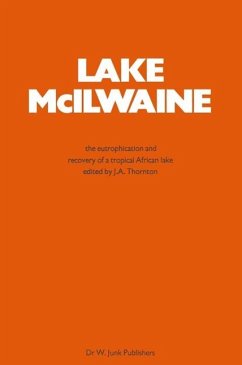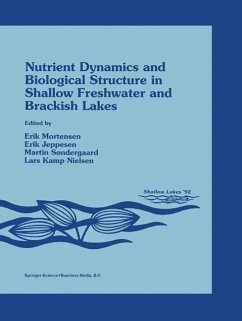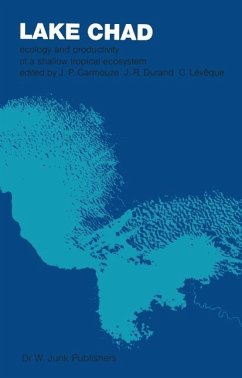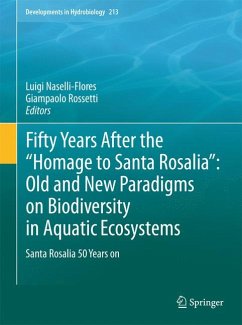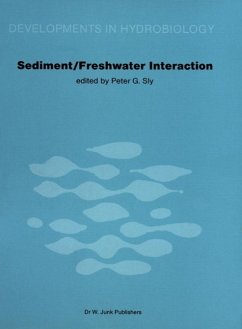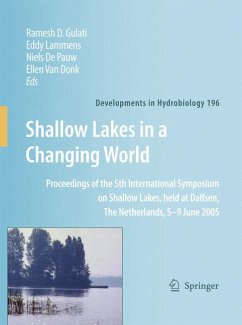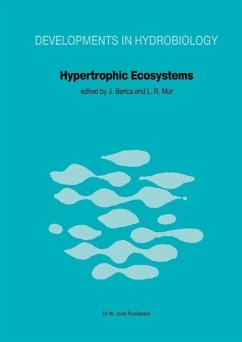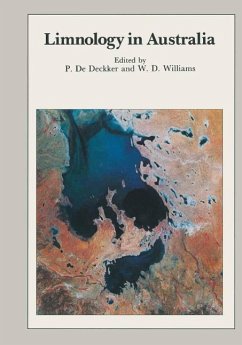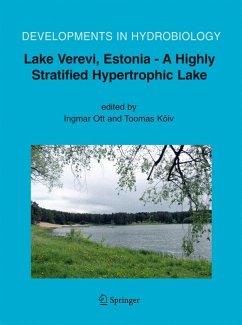
Neusiedlersee: The Limnology of a Shallow Lake in Central Europe (eBook, PDF)
Versandkostenfrei!
Sofort per Download lieferbar
72,95 €
inkl. MwSt.
Weitere Ausgaben:

PAYBACK Punkte
36 °P sammeln!
H. Laffler Interest aroused in the past by Neusiedlersee, located in what was earlier the western part of Hungary, was mainly due to the enormous fluctuations in water level and the consequent threat to the livelihood of the local popula tion, who lived chiefly from stock-farming. Practically no tourism touched the area until 1920, about a century later than Schubert's visit to the Salzkam mergut lake district, the traditional resort area in Upper Austria. Probably because of its small popularity there is almost no documentation in the form of engravings or paintings. One of the exceptions is ...
H. Laffler Interest aroused in the past by Neusiedlersee, located in what was earlier the western part of Hungary, was mainly due to the enormous fluctuations in water level and the consequent threat to the livelihood of the local popula tion, who lived chiefly from stock-farming. Practically no tourism touched the area until 1920, about a century later than Schubert's visit to the Salzkam mergut lake district, the traditional resort area in Upper Austria. Probably because of its small popularity there is almost no documentation in the form of engravings or paintings. One of the exceptions is an oil painting by Schnorr-Carolsfeld, from about 1820. It is obvious that there was no Phragmites at the time he painted the view near Neusiedl. When the shallow Neusiedlersee was discovered by tourists it began to attract scientific interest, although some earlier work by mineralogists, geographers and hydrographers does exist. But it was only after the Second World War that this interest could be intensified, the lake now being an alkaline, turbid body of water confined by the vast areas of Phragmites which had come into existence after the lake last dried out in 1868. Scientific work gained considerable impetus from international activities such as the Interna tional Biological Programme, International Hydrological Decade, and Man and Biosphere, the results of which will be included in this volume. But in spite of all such efforts Neusiedlersee will undoubtedly remain, in many respects, a mystery.
Dieser Download kann aus rechtlichen Gründen nur mit Rechnungsadresse in A, B, BG, CY, CZ, D, DK, EW, E, FIN, F, GR, HR, H, IRL, I, LT, L, LR, M, NL, PL, P, R, S, SLO, SK ausgeliefert werden.



